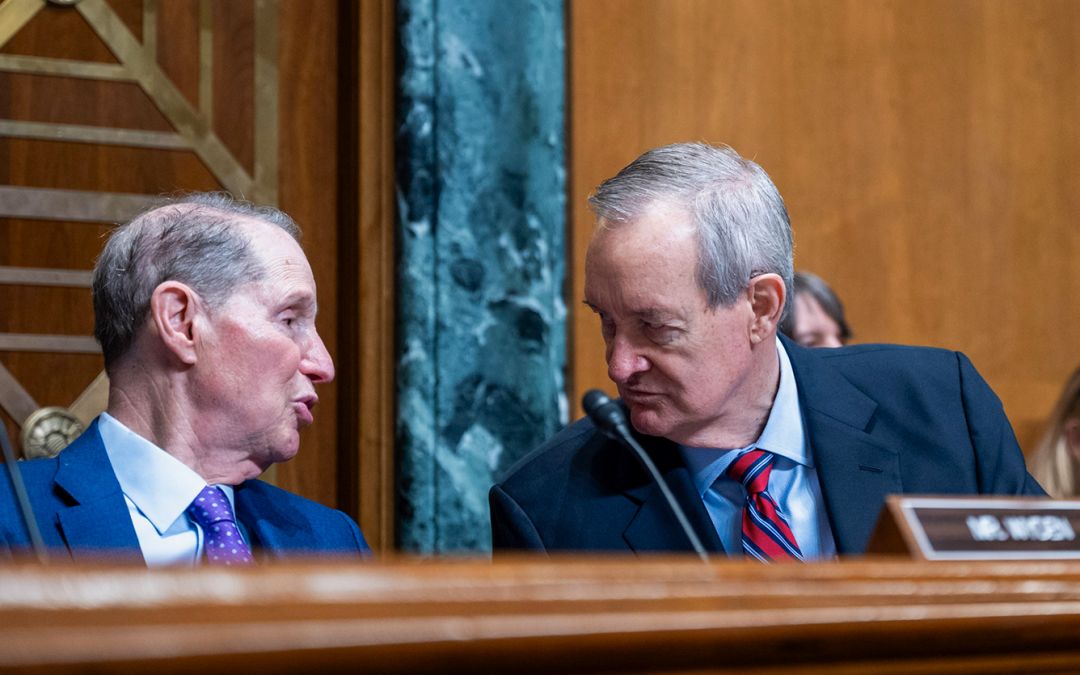WASHINGTON – The Senate Finance Committee debated proposals to address rising health care costs and alternatives to the Affordable Care Act (ACA) subsidies set to expire at the end of this year during a hearing on Wednesday.
The hearing comes in the aftermath of a prolonged government shutdown in which health care funding and tax-credit extensions emerged as central flashpoints. Roughly 93% of those who purchase insurance through the ACA marketplace received subsidies from the government in 2025.
If Congress does not pass legislation to extend the credits into 2026—a key demand of Democrats during the government shutdown—premium payments will more than double. Lawmakers on both sides of the aisle agreed on the broader health care affordability crisis plaguing Americans but differed on the appropriate path forward.
“Our health care system is broken,” Committee Chairman Mike Crapo (R-Idaho) said.
“Obamacare failed to make health care more affordable.”
Sen. Bill Cassidy (R-La.), chairman of the Senate Health, Education, Labor and Pensions Committee, proposed an alternative to ACA credits that closely aligns with President Donald Trump’s approach.
Under Cassidy’s proposal, eligible Americans would receive a pre-funded flexible spending account when opting into a bronze-level plan, which has the lowest premiums and highest out-of-pocket costs.
“Under the status quo my colleagues are pushing, 20% is going to the insurance company for overhead and for profit,” Cassidy said. “What we are proposing is that 100% goes to a patient-driven account which you can use for a physician or dentist or drugs.”
Brian Blase, president of the Paragon Health Institute, said in written testimony that pandemic-era subsidies have fueled the “ACA’s premium spiral.” He proposed several affordability solutions, including tax-favored accounts that give consumers more control over their health care spending.
“Extending temporary emergency subsidies would deepen our broken system instead of fixing it,” Blase said.
Senate Democrats dismissed this approach and raised doubts about Republicans passing new and effective legislation by the end of the year.
According to Ranking Member Ron Wyden (D-Ore.), there is “no way” for Congress to build a proposal that will help those affected by rising ACA premiums before January. Wyden said spending accounts can be a “useful tool for very wealthy people” but not a “comprehensive health insurance opportunity” for all.
Wyden introduced Bartley Armitage, a retiree from Oregon, as a witness before the committee. Armitage’s testimony focused on the personal toll of rising insurance costs, especially the monthly premium hike from $443 to $2,224 in his family’s ACA plan next year.
“Nobody wants to pay that kind of bill for one month, and most can’t afford it,” Armitage said. “A bill like that is like having to pay for two houses.”
“I urge you to take action that keeps our health costs affordable before we’re hit with a massive bill this January,” he added.
Senate Majority Leader John Thune (R-S.D.) promised Democrats a vote on ACA subsidies by the end of the second week of December, a move that led some Democrats to break with the party and vote in favor of the funding bill to reopen the government last week.
In addition to passing the Senate, a Democrat-sponsored bill must pass the House and secure Trump’s signature before ACA enrollees make their first payment for next year. But, the president urged Congress not to “waste” time on negotiating the subsidies in a Truth Social post on Tuesday, stating that he would only support a plan that sends money “directly back to the people.”
Despite Trump’s comments, lawmakers present at Wednesday’s hearings supported continued bipartisan efforts.
“I think everybody on this committee is all in for trying to work together to find those bipartisan solutions to make health care affordable,” Crapo said.

